Red Earth Read online
Page 24
The call dropped out and Jed tried redialling, but got a recorded message saying the caller he was trying was not available or out of range. ‘Shit.’
Jed tried twice more then went back upstairs to the officers’ mess. ‘Dunn, the man Franklin and I picked up at Suzanne Fessey’s house, seems to have found the kids. I lost contact with him before I could find out where they are. They could be in Mkhuze Game Reserve.’
‘Get on it, Jed,’ Chris said. ‘Keep trying and see if the South Africans can trace where that call came from. Then let’s get the hell out of here.’
‘To where?’ Jed asked.
‘Mkhuze, for a start. There’s no word that the South African police have picked the kids up so maybe we can get to them first. I’ve got authorisation for another helicopter and permission from the South Africans to “assist” in the search.’
*
Nia carried the baby, clutched close to her chest, and ran after Mike as he cleared a path through the thick, thorn-studded bush.
Behind her was the girl, Lerato, who despite being relieved at not having to carry the child, was huffing and puffing. Nia looked back. ‘Come on, catch up.’
‘I’m trying. I’ve been running for days.’
Themba, who was bringing up the rear, turned his back to her. ‘Climb up, I’ll give you a lift.’
‘No.’
Mike stopped. ‘Do as Themba says, Lerato. We can’t stop.’
Lerato swallowed her dignity and jumped up on Themba’s back. Nia wondered if Themba carrying Lerato – even though she was slim – would be any faster. Themba, however, easily kept pace as Mike charged ahead again.
They had all hidden in the bushes when they’d heard the noise of the approaching car engine. As soon as the man claiming to be a policeman called out, Nia had put her hand on Mike’s arm. ‘That’s him, the man who hijacked my helicopter.’
‘Egil Paulsen.’
Mike had wanted to go after him, to confront him, but Nia had quickly talked him out of it. ‘He’s ruthless, Mike, you know that. Unless you’re prepared to line up and shoot him in the head as soon as you see him, we have to run.’
‘I might not rule that option out if we do see him coming after us,’ Mike had said grimly.
Mike led them north, parallel to the tar road, close enough to hear and stop any passing national parks vehicle. He set a hard pace, but not so fast as to let Nia or the youngsters lag behind him. He’d told Themba to keep an eye out behind them, but it was hard work for him, having to stop and turn around with Lerato on his back.
‘I’ll be the rear guard,’ Nia said, dropping back. Mike gave her a look, but she stared him down. She had the baby on one hip and Banger’s pistol in her right hand. She was still fatigued from her earlier trauma, but the thought of what might happen if Paulsen caught them – especially her – kept her legs pumping and her senses alert.
As it was the middle of the night there was no tourist traffic. Nia could only hope that more national parks people, or legitimate police, responded to the call that must have gone out that the children had been found in Mkhuze Game Reserve. She also wondered what had happened to the other terrorists, whether they had been caught or if they, too, were still searching for their quarry.
The baby grizzled. Nia put her pistol back in the pocket of her flight suit. The child started to cry in earnest and she pressed his little face to her chest, rocking him as she strode through the bush. She rubbed the back of his neck, soothing him, but as her fingers moved over the soft warm skin she felt a lump.
The first thing Nia thought of was a tick. They were annoying creatures and easily picked up in the bush. They could cause tick bite fever, which was a horrible condition. Nia had had it as a child and recalled the terrible pain.
Nia moved the baby from her breast and held him out. She had to slow to a walk so as not to trip and drop him. Mike looked back, as he periodically did to check on them.
‘What is it?’
‘I don’t know, but the baby’s got a really hard lump in the back of his neck. I’m worried it might be a tick.’
‘Take a five-minute break, everyone. Themba, put Lerato down. Drop back about fifty metres behind us and come running if you hear anything – and I mean anything – following us.’
Mike came to Nia and pulled a small torch from his pocket. He turned it on and, shielding the light with his left hand, directed the beam at the baby’s neck.
‘Look, there’s a little wound here, like a puncture mark, but it doesn’t look like a tick bite,’ said Nia.
‘Nor a spider bite,’ Mike said. ‘Let me feel it.’ Mike ran his fingers over the skin then pinched the spot where Nia had felt the lump. He rolled it between his fingers. The baby gave a little cry. ‘Sorry, little one.’
She looked at Mike’s face. He squinted his eyes, thinking. ‘No.’
‘What were you thinking?’
‘It’s hard, like a foreign object.’
Nia fondled the infant’s skin again. ‘Yes, it’s not like a pimple or a bite or anything, is it? What could it be?’
Lerato, who had sat down on the ground, looked up. ‘Don’t look at me, I don’t know anything about babies.’
‘You think I do? You’ve had two more days’ experience at being a parent than I have. Mike, what do you think this thing is?’
He shook his head. ‘I almost can’t believe it, but it feels like a microchip.’
‘A what?’ Nia was incredulous. ‘My old cat had one of those. They put it in with a big bloody needle.’
Mike gently felt the child’s skin again. ‘A syringe, but yes, it would have hurt. As well as using microchips in domestic animals, to record their owners’ phone numbers and address, we use them in wildlife conservation, in rhino horns and in other animals to identify them.’
‘Who would do such a thing to a baby, though, and why?’ Lerato asked.
Nia thought about it. ‘Information. If this is a microchip then there’s something important on it, something someone took extreme measures to hide.’
‘Yes,’ Mike said. ‘The Americans told me the baby’s mother’s possibly a terrorist; she would know that if she was caught in South Africa, or crossing a border, the authorities would go through all of her possessions with a fine-toothed comb. If she’s got data to protect she couldn’t put it on a USB stick, and the security services seem to be able to hack everyone’s emails and online accounts these days. She’d be strip-searched, but a baby …’
‘No one would subject a baby to that kind of search,’ Nia said, finishing Mike’s thought. ‘What type of people are they?’
‘We’ve seen that for ourselves.’
He was right. Nia shuddered. She was about to ask Mike how they would find out what was on the microchip when they all turned at the sound of breaking branches. Themba burst into their clearing.
‘It’s Paulsen,’ he wheezed, catching his breath, his voice low and urgent. ‘He is coming. Listen.’
Nia cocked her head. ‘Engine.’
‘He’s driving a national parks bakkie, very slowly.’
‘Did he see you?’ Mike asked.
Themba shook his head.
Mike had tried calling the warden’s phone, but it had just rung out. He feared that Egil Paulsen had killed Jonas, and if that was the case it meant he had also killed all the men the warden had brought with them. That might explain the shot they had heard as they’d left the hide.
‘I’ll call the police,’ Mike said to the others, ‘tell them what we know, and that Paulsen is here in Mkhuze masquerading as a police officer, but it’s going to be hard to explain to whoever answers the phone.’
‘We need to act now,’ Nia said.
‘We must stop this man,’ Themba said.
Nia looked to the boy. Two days earlier she’d thought he was trying to kill her. The
impression she had of him had changed. He seemed bright, fearless and mature beyond his years. She saw, too, from the way he looked at Mike that he respected the older man. He waited for Mike to answer, but the researcher was mulling things over.
‘Mike?’ she prompted him. She knew enough about his past now to have an idea what was going through his mind.
Mike looked to her and then to Themba and Lerato in turn. ‘Themba’s right, we need to stop this monster.’
Nia waited for his eyes to return to hers, which they did. ‘Kill him, you mean.’
‘Yes.’
Chapter 23
Paulsen drove with his left hand on the wheel and used his right to swing a hand-held spotlight he had found in the national parks vehicle. He shone it left to right, over the cab of the truck and back again.
He scanned the bush as he cruised slowly along. Several times he picked out the twin glow of animals’ eyes between thickets.
Egil was banking on his quarry making a mistake, or at least the next move. It was about three kilometres from kuMasinga hide to Mantuma Camp, and his plan was to be there waiting for them at the camp if he didn’t find them in the bush first.
He calculated that the fugitives could not have reached this far yet, so he made a U-turn and retraced his route, illuminating the bush on either side of the road with the spotlight. A couple of kilometres down the road he turned again and retraced his route once more.
Paulsen swung the light up ahead and put his foot on the brake. There, on the left-hand side of the road, was something white. He was sure there had been nothing man-made, no piece of litter dropped by a careless tourist, when he had passed here twice before. He stopped the bakkie fifty metres short of the object, turned the lights off and got out, taking the keys with him. He let his eyes adjust to the moonlight. In the belt of his trousers was his pistol and in his hands he carried a slain ranger’s 7.62- millimetre R1 rifle. In the bulky pockets of his pants were two more magazines of ammunition, taken from the rest of the team.
He brought the rifle up and cut left into the bush. He advanced slowly, every sense on the alert.
Off to his right he saw the object in the bush on the side of the road. He could tell, now, that it was an item of clothing; it looked like a T-shirt that had snagged on a thorn-covered branch. As he moved forward he looked down and saw freshly broken branches, the pale bark shining in the moonlight. From the direction of the breaks he could tell that his quarry had walked from his left to right, across the road.
Paulsen turned right and started following the track.
No, he thought to himself. This was not right. Just as he began to turn, gunfire erupted around him.
He ran a few steps to the right then dived to the ground and crawled as fast as he could. Barbed thorns hooked his clothes and raked the skin on his cheeks, but he ignored the pain. Leaves shredded by bullets fell on his head.
‘Aim low,’ a man’s voice called amid the firing.
Paulsen flattened himself and felt a round cleave the air just above his spine.
There were two guns firing, by the sound of it: an AK-47, its distinctive pop-pop-pop signalling short bursts, and the slower, deeper repetition of a heavy-calibre hunting rifle, bolt action.
Paulsen leopard-crawled, the R1 cradled in the crook of his arms, until he reached the comparative safety of a stout tree. The solid trunk would stop any bullet. He curled himself around, took up the prone firing position, flicked the selector on his rifle to automatic and squeezed off three rounds.
‘Down!’
He had made them cease fire for a second. Paulsen jumped up and ran, keeping the tree more or less between him and the road. When he reached the tarmac he saw a figure dart from the national parks bakkie into the bush on the side of the road he had just come from. He raised the R1 and fired two quick rounds, but it was a snap shot at a running target and he doubted he hit anything.
A split second later a plume of black greasy smoke and orange flames blossomed from the back of the bakkie. He remembered now the jerry can of fuel lying in the back tray. With a whoosh of heat and an explosive whoomp the truck was consumed with fire.
Another weapon opened up, smaller calibre, a pistol, and a bullet flew past his face, dangerously close. It had come from the direction of the burning bakkie, but from the other side of the road. He was being bracketed. The AK fired again, a speculative burst.
Paulsen fired three rounds towards where the pistol shot had come from, but then had to swing and fire again as the AK-47 and hunting rifle tried to find him. His phone vibrated in his shirt pocket. Ducking down, he took it out and read the WhatsApp message.
He was at a disadvantage. His assailants would all be in cover and here he was on the edge of the road, ducking and weaving. He crawled to a tree and thought through his options. Arrayed against him was a man, a woman, and two teenagers. Three of them were armed.
‘I surrender,’ he yelled, then stood up.
Paulsen waited, bracing his body for the impact of a bullet. If he was Dunn, or even the woman pilot, he would have killed him without a second thought. But these people were not killers. He walked into the middle of the road, his hands up and the R1 held high above his head. ‘I’m putting the rifle down.’
‘Do it,’ a man’s voice said.
Slowly he lowered the rifle and placed it on the ground.
‘Handgun.’
Paulsen slid his pistol from his belt and, holding it by the trigger guard, placed it down next to the rifle.
‘Kick them aside.’
Dunn wasn’t taking chances, or, to be more accurate, he was doing his best to minimise the risk. Paulsen smiled inwardly and gave both weapons a swift kick so that they clattered and slid all the way to the gravel verge of the tar road.
He closed his fingers into fists, feeling the tip of the stiletto strapped to the inside of his right forearm. He would slash Dunn’s throat and use his gun to take out the boy first, then the woman.
‘Stay where you are. Put your hands on your head. I’m coming out.’
Paulsen complied and waited. He blinked as a beam of light from a torch lit up his face. He heard branches moving from a different direction, to his left, and looked that way.
Dunn emerged from the bush and stood at the edge of the tree line. He raised his rifle to his shoulder and took aim.
‘No need for that, I’m giving myself up,’ Paulsen said.
‘Shut up.’
‘Hey, I’m coming to you, OK?’ He took a step.
‘Don’t move. You take another step and I’ll put a bullet through your chest.’
‘Centre mass, not the head. Good thinking.’
‘Good training.’
‘You want me to be afraid of you?’
‘The only reason I haven’t shot you yet is because when the Americans get hold of you they’ll break you and the information you give them might save some lives. You’ve killed enough people, Paulsen. You deserve a bullet.’
‘Ah, so you know my name? You’re a South African but now you’re the lackey of the Americans, the Great Satan. They don’t care about our country, our Africa.’
‘I’m not on your side.’
‘You know nothing of my side. All I was trying to do was rescue a kidnapped child and bring it back to its mother.’
‘Another terrorist.’
‘I can see the Americans have filled your head with lies. What woman wouldn’t do everything in her power to get her child back?’ Paulsen needed to get closer to Dunn, near enough to kill him, quickly. He took a step towards the man.
The gunshot echoed around the hills of Mkhuze and Paulsen felt the hot rush of air past his left cheek. He stopped.
‘At this range a head shot is just as easy as centre mass,’ Dunn said to him from the shadows. ‘Lie down on your belly and put your hands back behind your head.’
‘You’re not taking any chances, are you?’
‘No.’
Paulsen got down on his hands and knees, then prostrated himself. He put his hands behind his head and from the corner of his eye saw Dunn circle around. He heard the man’s footsteps on the road behind him. He was close.
‘There’s no need to be so worried. I’m sure you’ve got the boy somewhere close by covering me with his AK-47. I wouldn’t be surprised if that wildcat of a helicopter pilot doesn’t have a gun as well. The warden told me you had a woman with you and I can only assume it’s her.’
‘Everyone is safely away from here. It’s just you and me now. No witnesses.’
‘Should I be scared?’
‘You don’t strike me as the kind who scares easily.’
Dunn was right. Paulsen wondered if Dunn really was alone. It would make sense for the children to keep moving through the bush. Once he killed Dunn he would have to track them, though this time he would be prepared for an ambush. He had underestimated these fugitives’ ability to fight back, as opposed to simply fleeing like startled prey. He would not make the same mistake again.
‘What’s on the microchip?’
Paulsen bit back the curse. ‘What microchip?’
‘The one that you or some other sick fucker, or the baby’s mother, inserted into the back of his neck, as if he were a dog.’
Dunn worked with wildlife; he would know a microchip when he felt one. There was no reason to continue playing dumb, Paulsen reasoned. What he needed to do was kill Dunn and the others before one of them passed on this information to the Americans.
‘You think I’m going to tell you?’
‘I think the Americans probably know.’
‘It’s nothing to you, the information on the chip. Give the baby to me – the chip is all I want. The Americans will kill the baby, kill anyone who knows about that chip.’
‘Bullshit,’ Mike said. ‘Americans don’t kill babies.’
Paulsen nodded. ‘Usually their soft hearts get in the way, or if they kill children in battle they call it “collateral damage”. They are weak. But trust me, they will kill that child if they have to in order to get that chip. You, the teenagers who are on the run, the woman, are expendable to them. They don’t want to take the risk of you leaking information to the media. They’re weak, but they’re at war. You will be collateral damage to them, like the innocent victims of some indiscriminate bombing campaign.’

 The Cull
The Cull Blood Trail
Blood Trail Red Earth
Red Earth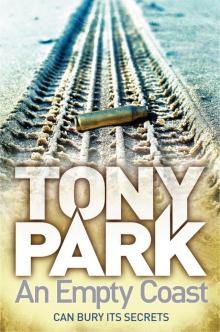 An Empty Coast
An Empty Coast Dark Heart
Dark Heart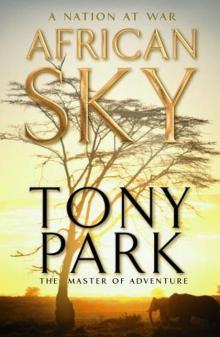 African Sky
African Sky The Delta
The Delta Captive
Captive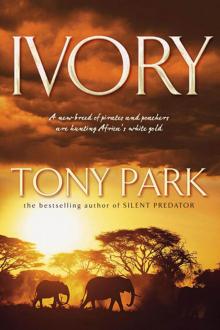 Ivory
Ivory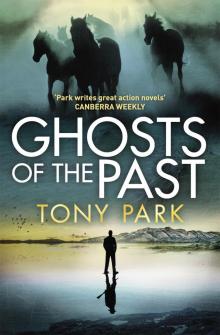 Ghosts of the Past
Ghosts of the Past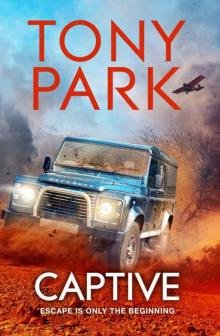 Captive_A High-octane And Gripping African Thriller
Captive_A High-octane And Gripping African Thriller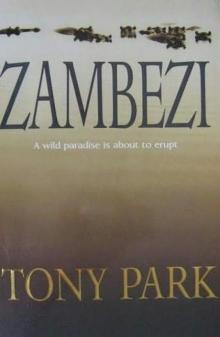 Zambezi
Zambezi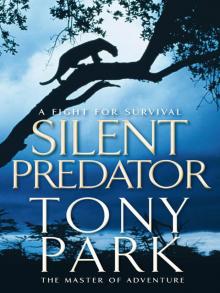 Silent Predator
Silent Predator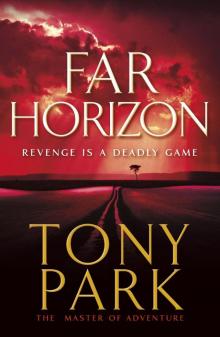 Far Horizon
Far Horizon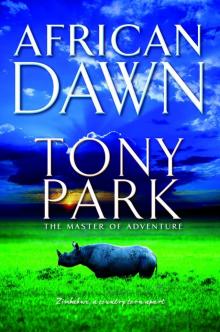 African Dawn
African Dawn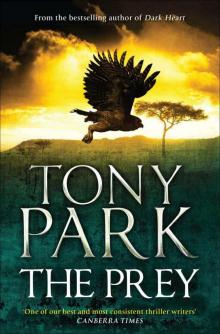 The Prey
The Prey Safari
Safari